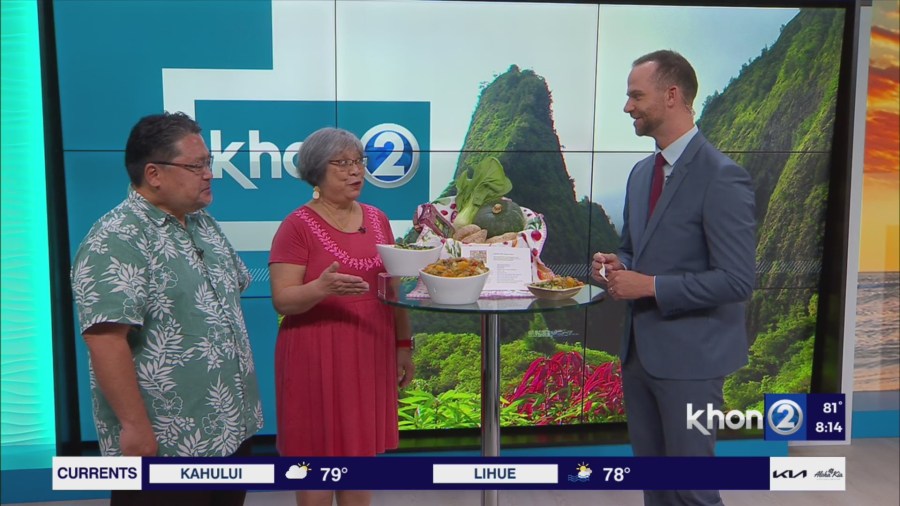HONOLULU (KHON2) — The Hawaii Nutrition Program is on a mission to make sure no keiki goes hungry, including a summer meal program called Kaukau 4 Keiki. Sharlene Wong, the program administrator with the Hawaii Nutrition Program joined Take2 Tuesday morning to talk story about what they’re doing.
“We have approximately 13 sponsors that provide the Kaukau 4 Keiki meals and they’re largely boxes that are packed for our families in rural communities,” Wong said. “Because as you know hunger doesn’t take a vacation and so it’s very important for our children while they’re out of school to be able to have access to food and nutritious food. So we serve approximately 219,000 meals a week through our Kaukau program. We have 13 sponsors and 133 sites where our keiki can come and pick up these meal kit boxes.”
Much of the food is from local farms and paid for by sponsors, which allows them to make a massive amount of meals for keiki.
“We’ve been putting local produce in our meal kit boxes like kabocha, we have cabbage, ground beef, and sweet potato. It all comes from local farmers and we give out recipes so that the families can utilize the local products and prepare recipes that are healthy and nutritious because that’s so important,” Wong said.
Lanakila Pacific Kitchen’s Reid Yasunaga said they make thousands of meals every day.
“Right now this is our 5th year doing it. Currently, we are at 31 sites. We do 1,500 meals a day out of here. Great impact to our organization being able to help our mission along throughout the summer. Summer is actually our busiest months of the year right now,” Yasunaga said.
The program not only helps keiki but supports local farms as well.
“The last time we took data was 2021, and we actually put back $1.5 million into the local economy because we purchase so many products from our local farmers,” Wong said. “If you were to go out to Waianae to Kahumana Farms, a lot of people in my office have gone out to volunteer, and you see the local farmers pulling up in their pickup trucks and unloading papaya, kabocha, cucumbers, and whatever they’re growing mangoes, lychee, and selling it to Kahumana Farms and then Kahumana Farms packs it in the boxes and we see that.”
They’ve also been developing local recipes that families have given to them. You can see some of those recipes here.
